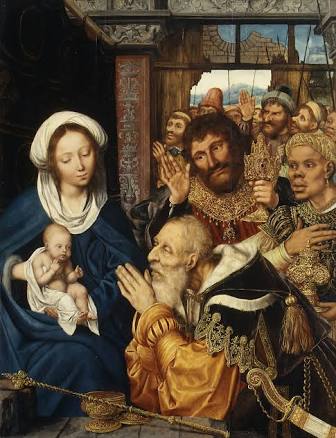Christmas time highlights — usually in relatively trivial ways — the tensions between traditionalists and advocates of progressive forms of secularism and multiculturalism. The underlying issues run deep, however, and go to the heart of some basic political principles and assumptions. These issues are real and intractable. They will not be resolved by linguistic or conceptual analysis. But at least they may be clarified.
Recently I tried to articulate some nagging concerns I have about the concept of religion. My basic point was that no equivalent of our modern notion existed in the ancient or medieval worlds. Nor do you find such a notion in most non-Western cultures. These facts don’t necessarily undermine the concept of religion, but they should make us question it.
Take the Latin word ‘religio’. It did not mark out a separate (“religious”) sphere of living. This compartmentalized view of life only arose in the modern era and, though it seemed to work and bring social benefits, it could be seen to be both anomalous (historically speaking) and intrinsically unstable.
A standard Christian view is that there is no separate religious sphere of life: that life is an integrated whole and not compartmentalized into religious and secular components. I would argue that such a view, not dependent on an inevitably abstract and arbitrary notion of religion, is natural and robust and can work not only for those who are committed to traditional creeds and practices but also for those (like me) who are not.
Problems arise, of course, when people committed to very different views and traditions live together, and the secularization of politics and public life could be seen as a sensible and pragmatic solution — perhaps the only viable and humane solution.
My focus here is not on policy prescriptions, however, but rather on certain fundamental ideas about religion. These ideas are important at least to the extent that they motivate and help to justify political judgments and prescriptions.
Typically, traditional liberal approaches have not been based solely on pragmatic concerns but have been motivated also by metaphysical views, often involving a generalized religious perspective deriving from Stoic and Neoplatonic sources. Human rights talk, for example, derives from the natural law tradition which in turn owes much to Stoicism. And the modern notion of religion (against which the secular is defined and upon which notions such as religious freedom depend) could be seen as deriving in large part from Renaissance Neoplatonism.
A number of key 20th-century liberal thinkers, though ostensibly agnostic, took religion very seriously indeed. The views on religion of Ludwig von Mises were not atypical.
Though lacking any specific religious affiliation, Mises was a relentless critic of behaviorism and a believer in human freedom, not just in a political but also in a metaphysical sense. In Theory and History (1958) he states that he sees an essential truth lying behind sacred scriptures and mythic narratives of the fate of the soul. These “rather crude representations” have been sublimated, he claims, by religious doctrines and by idealistic philosophy. Neither reason nor science is able “to refute cogently the refined tenets of religious creeds.”
History can explode many of the historical narrations of theological literature. But higher criticism does not affect the core of faith. Reason can neither prove nor disprove the essential religious doctrines.
Essential religious doctrines? Mises expresses a commonly-held view, but it is one which I personally cannot make sense of. What is this essential religion exactly?
One does not lightly dismiss a body of concepts and practices which has, one way or another, underpinned political thinking in the West for hundreds of years. But times change and current levels of social discord would seem to indicate that classical liberal principles have lost traction. Whether they can be reworked and applied effectively to the sorts of societies we now have is a moot point.
At the very least, however, these ideas and their motivating principles need to be subjected to critical scrutiny and reframed in terms which can be understood without recourse to the idealism and essentialism of another age.

